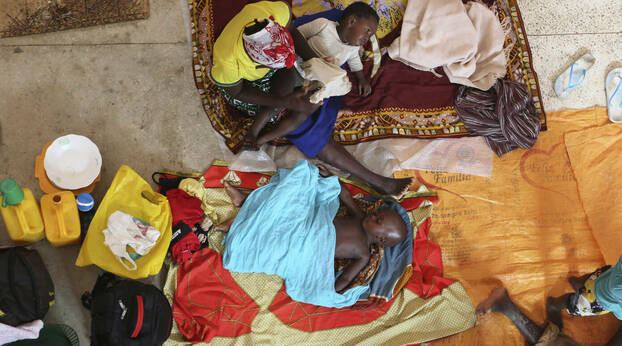
The northern Mozambican province of Cabo Delgado has been the site of a brutal insurgency since 2017. The conflict began as a series of attacks by radical Islamist groups, but has now evolved into a full-scale civil war in which more than 2,600 people have died. The escalation of the conflict in the natural gas-rich province has gone largely unnoticed by the global political public, but not by political actors. The European Union, the United States, and the Southern African Development Community (SADC) are exerting increasing pressure to get involved.
Piers Pigou is a senior consultant for Southern Africa at the International Crisis Group.
Jasmine Opperman is an analyst with the Armed Conflict Location & Event Data Project (ACLED).
So far, Mozambique has refused to allow foreign troops on its territory, citing the need to preserve its territorial sovereignty. While the government welcomes offers of military training and equipment, it has so far categorically rejected any direct interference. The SADC Troika has met three times, as it fears the conflict could escalate into neighbouring countries and is also concerned about the humanitarian crisis and human rights abuses being committed mainly by the insurgents. The regional bloc has proposed to send a 3,000-strong army composed of different military branches to support Mozambique. However, Mozambique insists that it would prefer its own troops to be trained over the presence of foreign soldiers.
Enormous gas deposits were discovered off the Mozambican coast in the early 2010s. Since 2017, coinciding with the beginning of the terrorist attacks, various corporations have sought to begin exploiting these resources. The major oil companies Total (France), ENI (Italy), and ExxonMobil (US) are also involved. A special zone has been established on the Afungi Peninsula in Cabo Delgado to handle the liquefaction of the gas necessary for transport.
Locals call the terrorist organization “Al-Shabaab”. The US State Department call it “Islamic State-Mozambique” (or ISIS-Mozambique), but the group calls itself Ansar Al-sunna. According to the State Department, the group is led by someone named Abu Yasir Hassan. A number of different narratives have been advanced as to the roots of the insurgency. At first, analysts and the Mozambique government blamed the conflict on bandits who sought to stir up chaos in order to mine without government control. Later on, the narrative changed to a group of foreigners conspiring against Mozambique’s development. Ultimately, the government acknowledged that it was facing terrorist attacks organized by the Islamic State. Others continue to blame the conflict on drug trafficking in the coastal northern Mozambique and on the fragility of its borders with the Republic of Tanzania. However, like any conflict of this type, a combination of factors including deep-rooted social, political, religious, and economic marginalization lies at its heart.
In order to understand the dynamics around this brutal conflict, last year the Rosa-Luxemburg-Stiftung’s Southern Africa Office in Johannesburg commissioned a study by two analysts who have followed the conflict since the outset. Conflict in Cabo Delgado: From the frying pan into the fire? provides an overview of the Islamist insurgency that has been unfolding in Mozambique’s northern province since October 2017. It is intended to promote discussion about the challenges and options in addressing immediate security concerns, as well as longer-term development and human security challenges.
The insurgency in Cabo Delgado is now at a crucial juncture. While the government of Mozambique desperately tries to work out a response with the backing of political and security actors, the situation continues to pose an accelerating security and humanitarian challenge.